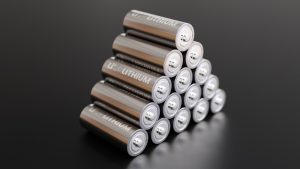A flea market bargain turned into a shocking discovery when a man found sensitive personal data on second-hand hard drives.
Others are reading now
A flea market purchase turned into a shocking revelation when a Dutch man unknowingly acquired sensitive healthcare data stored on old hard drives.
Every now and then, flea markets offer unexpected treasures — but in Robert Polet’s case, the discovery was anything but pleasant.
A Bargain with a Secret
According to The Register, 62-year-old Polet is a longtime computer and electronics enthusiast with a passion for photography and drone imagery. Given his storage needs, he saw a great deal at a flea market near Weelde Airport in Belgium, close to the Netherlands border.
For just €5 each, he purchased five second-hand hard drives, each with a 500GB capacity.
Also read
What he found inside, however, was far from ordinary.
As reported by Finnish media outlet Mikrobitti, Polet discovered large amounts of personally sensitive healthcare information dating back to 2011-2019. The data primarily belonged to individuals from Utrecht, Houten, and Delft in the Netherlands.
According to The Register, the exposed data included social security numbers, dates of birth, home addresses, and medical history.
Had these drives fallen into the hands of someone with malicious intent, they could have been a goldmine for identity theft.
More Hard Drives Up for Sale
Realizing the seriousness of his discovery, Polet returned to the flea market and bought the remaining hard drives from the same seller.
As reported by Trend, the data originated from Nortade ICT Solutions, an IT company specializing in healthcare sector solutions. However, the company is no longer active, and its website has been taken down.
Under Dutch law, only certified professionals are allowed to erase healthcare data from storage devices, and the deletion must be verified.
According to IT security firm Malwarebytes, one likely explanation is cost-cutting. Proper data destruction is an expensive process, and the company may have chosen to sell the hard drives for profit instead.








